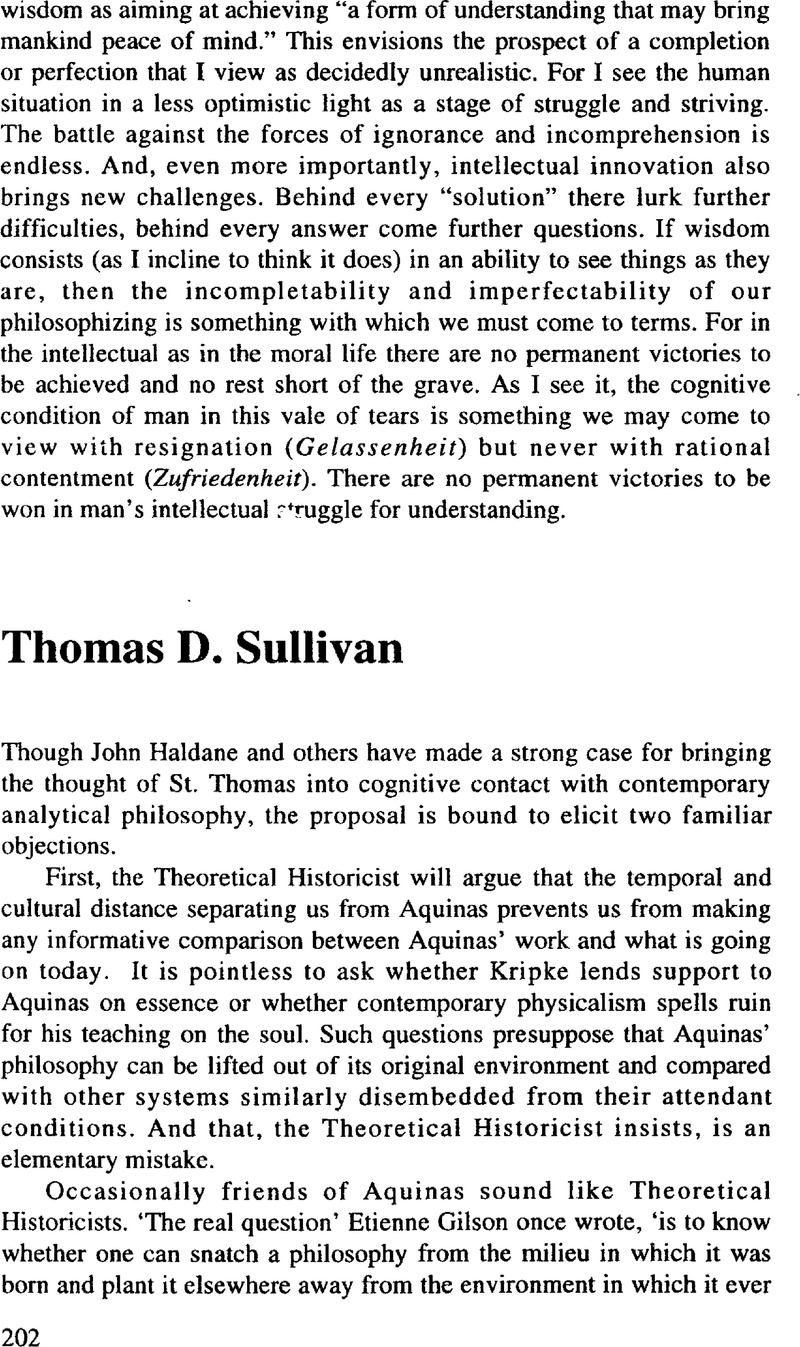No CrossRef data available.
Article contents
Thomas D. Sullivan
Published online by Cambridge University Press: 01 January 2024
Abstract

- Type
- Other
- Information
- Copyright
- Copyright © 1999 Provincial Council of the English Province of the Order of Preachers
References
1 Etienne, Gilson, The Christian Philosophy of St. Thomas Aquinas, translated by L.K. Shook, equivalent of the 5th and last French edition, (Notre Dame: University of Notre Dame Press, 1956), p. 22Google Scholar.
2 Mark Jordan, ‘Neo-Thomism,’ in Ted Honderich, ed., The Oxford Companion to Philosophy (Oxford: Oxford University Press, 1995), p. 615.
3 J.J.C. Smart and J.J. Haldane, Atheism and Theism (Oxford: Blackwell, 1996), 132.
4 Aquinas, for example, claims it is evident that ‘every whole is greater than its parts’ Analysts mindful of Galileo and Cantor will spontaneously ask whether Aquinas means to include infinite sets.


